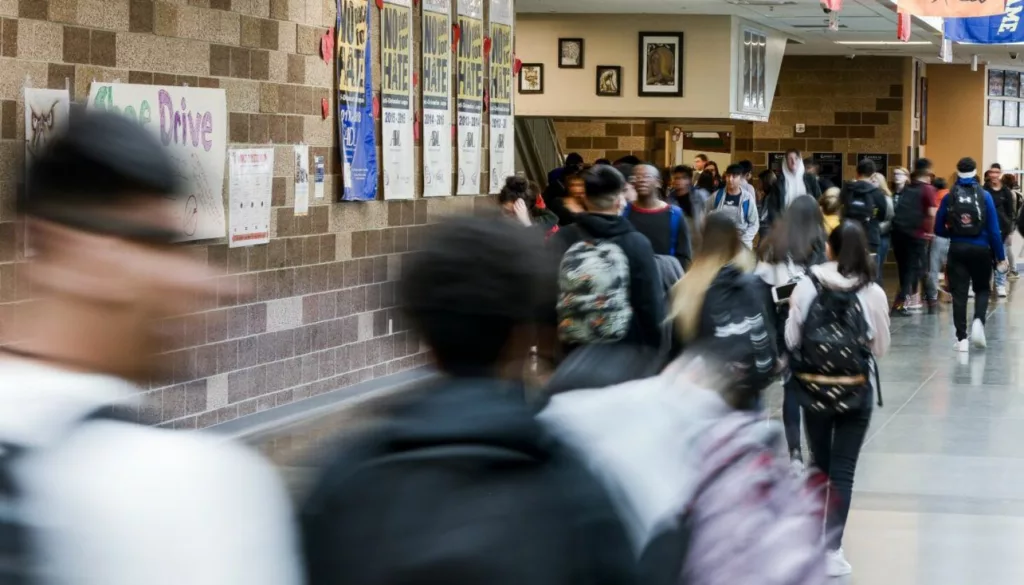[ad_1]
I’ve been code-switching due to the fact I was 5. Again in kindergarten, when I required anything from my teacher — a sticker, say, or an extra prize — I would increase my voice to the best pitch my vocal cords would let, tilt my head, and twinkle my eyes. Just after getting the sticker or prize, I could relax and discuss to my pals with my pure voice, which is decrease.
My younger self couldn’t inform you then what code-switching meant, only that I understood that altering my voice and demeanor endeared me to my instructor.

Enoch Naklen
Courtesy image
Code-switching, a expression coined in the 1950s by the linguist Einar Haugen, refers to the system of going concerning languages and dialects. Far more recently, scientists crafting in the Harvard Company Review outlined code-switching as shifting one’s language, mannerisms, or visual appeal to “optimize the comfort and ease of other folks in trade for good treatment, high quality service, and employment options.”
In the U.S., the onus of code-switching (and creating other individuals comfy) typically falls on persons in marginalized communities who are expected to discuss and act like people in power — very often, white folks. Code-switching is just 1 side of an uphill struggle marginalized communities experience striving to endure in a culture not built for us. Again in kindergarten, it appeared like a harmless way to get benefits from my trainer now, as I in the vicinity of adulthood, it feels like a important resource just to get by in certain scenarios, like at university.
I am a senior at The Brooklyn Latin College, one particular of New York City’s specialized high faculties wherever admission is dependent on a one test Black and Hispanic college students, who make up about 65% of all city pupils, are chronically underrepresented at these elite colleges. In advance of significant university, I attended educational institutions that enrolled mostly Black and Hispanic college students. Even with Latin being among the most assorted of the specialised faculties, Black and Latino learners still make up 12% and 11% of students, respectively.
When I acquired to Latin, I subconsciously began to converse in a higher-pitched voice at faculty and built certain not to let any African American Vernacular English, from time to time known as Ebonics, slip into my speech. I commenced to think that to get ahead, I required to “act white” in a culture that privileges whiteness.
Code-switching also carried me through my interviews and internships. In experienced configurations throughout higher university, I hewed carefully to the mannerisms of the individual in demand a lot more typically than not, these people ended up white. I tried out to blend in.
The swap again and forth has turn out to be so normal that my pals and I joke about it. Following an interaction with college personnel, for example, I immediately relax, resting my shoulders and returning to a ease and comfort zone between some others who are also common with what it is like to be a Black college student at an elite school.
My close friend Iyatta explained her experience like this: “As before long as I stage into the office environment, I activate my telemarketer voice, refresh my vocabulary, becoming confident to remind myself of numerous formalities and await the lengthy working day ahead of me.”
She explained she expert “undeniable” advantages of code-switching for the reason that many others understand her as experienced, but famous, “I will generally have to outperform the mediocre greater part mainly because of the interior biases that plague our modern society.”
I know what she signifies mainly because in spite of becoming an extraordinary Black scholar who feels relaxed in his personal pores and skin, imposter syndrome has festered inside me. In some cases I experience like I have to act a specified way (and not just “be myself”) to be approved in some options.
The subject matter of code-switching brings up a great deal of robust and conflicting feelings, like when university soccer coach Deion Sanders just lately referred to as out a Black reporter for code-switching throughout an interview. Some assumed Sanders was out of line, while some others noticed him as starting a a lot-required conversation in the Black group.
I see validity on each sides. I’m well aware of the load of code-switching and the dexterity it demands, but it also helps make me much more informed of the identities of the persons and areas around me. Extra sympathetic, also. And it’s given me a higher understanding of who I am and my responsibility as a Black guy to be very pleased of my identity, even in spaces the place I’m not in the bulk.
Staying relaxed with who I am no issue the problem implies I’m no more time insecure about pairing “good afternoon” with a organization handshake as an alternative of a head nod and dap. For the reason that now it doesn’t come to feel like I’m hoping to assimilate into an atmosphere I do not totally resonate with it feels like leveraging a tool of social results.
Enoch Naklen is a senior at The Brooklyn Latin School and a Chalkbeat University student Voices Fellow. He encourages younger adults to have challenging conversations.
[ad_2]
Source website link
Meet Our Successful Graduates: Learn how our courses have propelled graduates into rewarding
careers. Explore their success stories here!
Discover More About Your Future: Interested in advancing your teaching career? Explore our
IPGCE, MA, and QTS courses today!

Explore Our Courses: Ready to take the next
step in your education journey? View our
comprehensive course offerings now!

